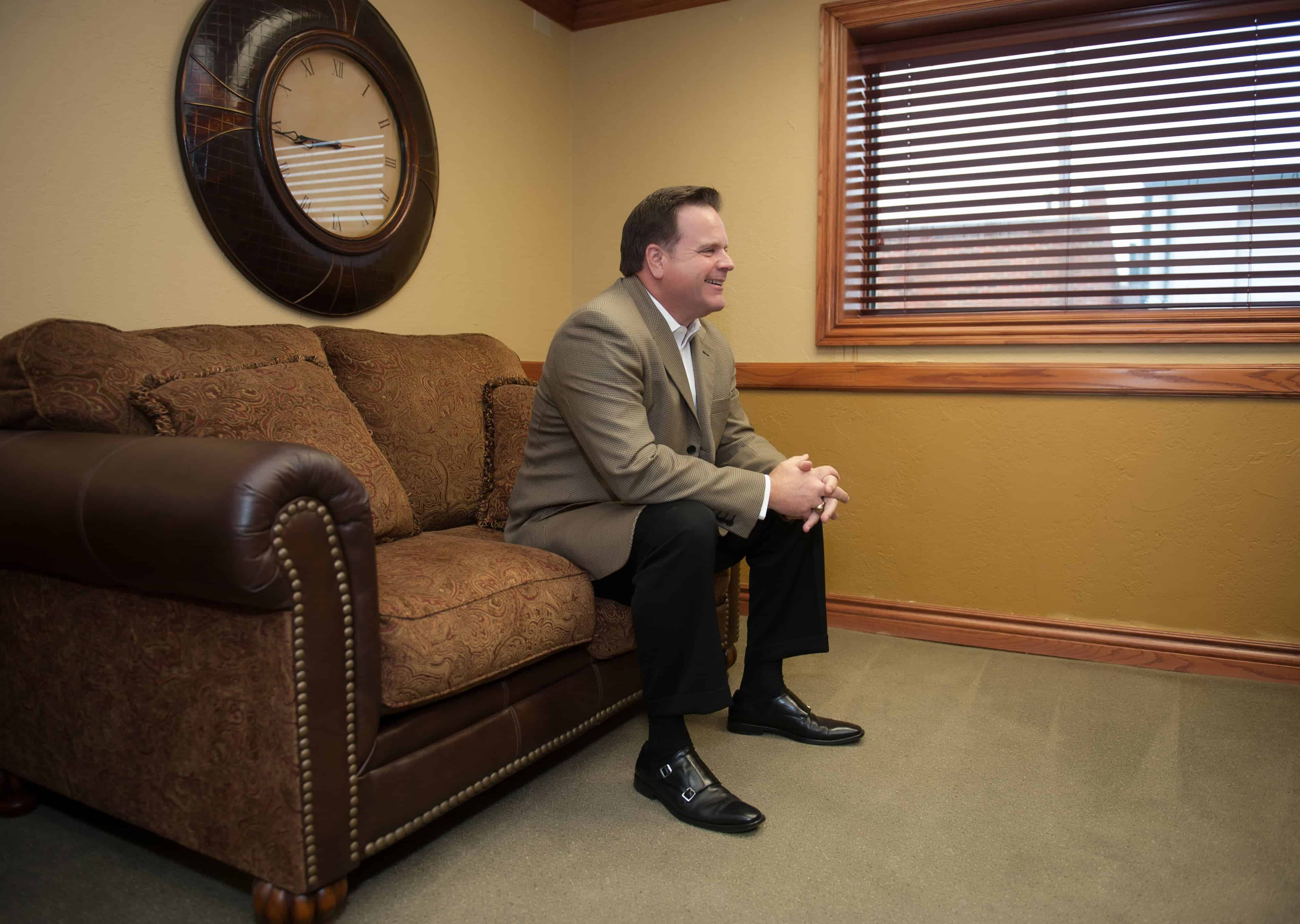Good morning! This is Jimmy Williams for Live a Life By Design. Thank you for joining me today for this wonderful episode that I hope you will take to heart and that you will utilize in your future very soon. I’m talking today about legacy. You know some people think, hey, I’m only in my twenties, or thirties, what do I care about legacy? Well, today we’re going to discuss a couple of gentlemen that actually started in their teens creating their legacy.
Hey, thanks for joining me. Many of you have placed some comments on our livealifeby.design website, as well as our Facebook pages, and thank you so much for those wonderful and generous comments. We continue to hopefully grow this podcast, reaching out to those people that need a Monday morning moment of motivation to start their week on the right foot. So this week, if you would do me the honor, reach out, share one episode of this podcast by texting that link from iTunes to two of your friends. Send that to them, and ask them to listen. If you’ve found a particular episode through the first twenty-seven episodes that appeal to you, send that link out. It’s very easy to do. Just go to the podcast, pull up the episode you wish and then share a link through the iTunes share a link process on your phone. I’d certainly be most appreciative.
So what is a legacy? You know legacy to me is far more than extravagant buildings with my name on it, streets that are named after me. Or even charitable foundations that simply require riches to be built. Legacy is much more than that. You see, legacy can be a positive or negative thing. So why is is important to even leave a legacy? You know family and community history is critical for the future generations to understand the beginnings of their lives. You know I fear that our next generation has had life so much better than we, when we were children that they may not understand the work, the dedication, the commitment, the heart that goes into building a legacy.
You know, who paid it forward to the point in the timeline that inspires our children to pick up the “torch” and carry out the next generation of legacy. Legacy provides the background that many generations have built their entire family foundation upon. I know one of the foundations that my father, now 80 years of age, has left me as a legacy is a work ethic. Is the kindness attribute to treat others that are less fortunate. And I don’t mean those simply that have less, maybe in material goods or wealth or money. I’m talking about those that may not even have the legacy in their background. Perhaps their family didn’t have the best of foundation.
I’m gonna visit with you just a few minutes today to hopefully inspire you to leave a legacy that is most empowering for your family. May your kids and grandkids find something from your life that inspires them to go out and make the world a better place. One of the statements I always tell my children and the first week that they’re in the university, I give them this as basically a quote, I’m not ever gonna tell you how to live your life. I’ve tried to show you through my own. I’m not going to tell you what career to choose in life. I simply ask that you choose something you’re passionate about. And remember for passionate about that act will never work a day in our life. The last thing I leave them with is this simple statement. I’m not asking you to go out and build riches, but I am asking you to go out and live your dreams.
Born in 1794 to an impoverished farmer and boatman, Cornelius quit school at age 11 to work on the waterfront. In 1810, at age 16, he purchased his first boat with money borrowed from his parents. He would ferry passengers between Staten Island and New York City. During the War of 1812, Cornelius enlarged his operation to a small fleet and supplied government outposts. At 24 years of age, he sold his small fleet and went to work for Thomas Gibbons as a steamship captain. Cornelius learned the steamship business and acquired capital that he would use to start his own steamship company. During the next decade, Cornelius gained control of the traffic on the Hudson River by cutting fares and offering unprecedented luxury on his ships. His competitors paid him a handsome sum of money to simply move his business. By 1846, he was a millionaire.
In the 1850s, Cornelius turned his attention to the railroad. He bought up so much stock in the New York and Harlem Railroad that by 1863 he owned the line. He later acquired the Hudson River Railroad and the New York Central Railroad and consolidated them in 1869. During the last years of his life, Cornelius ordered the construction of Grand Central Depot, the forerunner of the Grand Central Terminal in New York City. Never interested in philanthropy, he did give $1 million to Central University in Nashville, Tennessee (later named Vanderbilt University). He left $90 million to his son, William, and $7.5 million to each of William’s four sons. Cornelius held a lifelong contempt for women and left a relatively small remainder to his second wife and his 8 daughters. You probably concluded that I’m speaking of Cornelius Vanderbilt.
His life, his legacy, for which he’s known has been one built upon fortune. He built his fortune by doing things unheard of in his industries for that era. The cutting of fares to such a low level that his competitors couldn’t even compete, gained him tremendous fortune and a legacy. Not one that’s mostly positive. He is known for basically creating the foundation of wealth for his family that then biased only one side of the family. His daughters, 8 daughters and one son. He left $90 million dollars to one son. And very very few dollars to 8 daughters. To me, I don’t know if that’s the legacy of which I would want to emulate. It’s not a legacy that inspires me to go out and make the world a better place. You see the investment of this particular individual was to enhance his own. Now I’m not saying you shouldn’t aspire to have great wealth. I’m not saying you should make this your number one focus. I am saying, however, though, that the means of earning well simply to become wealthy is shallow. That means will not bring happiness to you or a great legacy to your family simply to be wealthy.
Now I already know that some of you are thinking that this man has lost his marbles. He has knocked off his rocker and he doesn’t understand that we’re in a world that requires us to have means and material. I get that. I will say though that remember that you are in control of your wealth and your means when you place it into higher meaning projects. Let’s contrast the legacy of Cornelius Vanderbilt with this gentlemen’s legacy.
Born in Scotland in 1835, Andrew eventually became one of the most wealthy men in the world. However, he decided to become one of the greatest philanthropists of his era. His family emigrated to America in 1848. At age 12, Andrew began working as a bobbin boy in a cotton factory. He quickly became Americanized, educating himself by reading and writing while attending school at night. When he was 14, Andrew became the private secretary and personal telegrapher to Thomas Scott, Superintendent of the Pennsylvania Railroad Company. While employed at the railroad, Andrew invested in the Woodruff Sleeping Car Company (the original holder of the Pullman car company patents) and introduced the first sleeping cars on American railroads.
Continuing with shrewd investments in bridge companies, iron mills, oilfields and railroads, Andrew was earning an annual income of $50,000 by the age of 30 (folks this was the year was 1865, at the end of the Civil War in the United States). $50,000 was a tremendous amount of money. Very wealthy for his time. Eventually, Andrew turned his attention to the steel mill business. He created vast holdings and consolidated them into what was known as the Carnegie Steel Company. Even during the depression, his companies prospered. In 1901, Andrew sold his steel company for $480 million. He retired and devoted himself to his vast philanthropic activities. During his lifetime and beyond, Andrew Carnegie’s wealth has improved our nation by building libraries, universities, theaters, child welfare centers and so much more. His main goal in life was to give his fortune away to improve the lives of others. You see, his legacy, of being taught an excellent work ethic, and being creative being consistent in his investments created his wealth. He had the statement, he wished to commit the first half of this life to gaining wealth, the second half of this life will be spent giving it away. You see, his main goal in life was to give his fortune away to improve the lives of others. While visiting New York City, which I have many times, and other cities across the U.S. and Scotland, you will see first hand the impact of legacy in the mind of Andrew Carnegie.
Which of these two legacies inspires you more? The legacy of Cornelius Vanderbilt and the amassing of wealth simply to pass it down to your family, or perhaps Andrew Carnegie, the accumulation of wealth, but also the investment of the same in the world around us to improve the lives of others. You don’t have to amass a fortune though, to leave a legacy. Have you thought about writing your memoirs, leave a journal, or some form of history for your children and grandchildren to understand your philosophy of life. The history of your family. Your thoughts and decisions you made that at time might not have been most pleasant for your life. Are there family assets that you hold tremendous sentimental value that reflect your legacy that you could leave to your children and grandchildren.
You see to me, legacy is far more than simply leaving money. I hope that someday through my books, through these audio recordings, through the life I’ve led, the contributions to society, whether it be monetary or my personal time. Would be something that leave my children a legacy. You see, also we do have the opportunity, no matter what we possess in material goods to leave a spiritual legacy. It reminds me of the legacy that is left by Mother Theresa. The one person that had one of the greatest impacts on mankind. Winning Nobel Peace Prizes and feeding orphans with her own hands in impoverished countries such as India. One of the things that I do understand that she left as a legacy was a mindset to help others and a heart dedicated to do so.
Where have you got your mindset today. I look around this world in which we live, and too often we see people working for themselves. Now certainly I understand you must be committed to whatever position you hold with your company, or if you own the company you have to have vision. I clearly get that. But one of the greatest legacies left by Mother Theresa was the legacy of helping those that have been given much less. Now when you look at Mother Theresa’s net worth, purely and solely because of her salary she received from the church, she was not a wealthy woman by material means. However, she was one of the richest of women in the world when it came to giving. She would have given her last dime to help the orphans have one more meal.
What kind of dedication and commitment have we given to our community, to our world? In a time when we seem to be going in different directions all day long, what brings us back to that one point in time where we realize what’s most important. Why as a country do we feel that it is better to fight among ourselves as opposed to finding the common ground and building a better future for the next generation of Americans. You know, it breaks my heart to sit down and see how some families have suffered through the generations because of a legacy that was built on negativity or one that was built on shallow means.
It is not just simply money, buildings, and wealth that create a legacy. Most importantly I believe this legacy is created by your writings, your thoughts, your philosophy. Your family’s history is one that I think could be very positive for future generations. The challenge this week is I want you to spend some time thinking about your legacy. What do you want to be known for. There’s a story goes back to a young boy walking through a cemetery with his grandfather. He came upon a grave and it had a tombstone that simply had the name of the deceased, it had the year he was born and the year that he died. It had no other mention of being a great father, great husband, brother, uncle, doesn’t matter. Had no other notations but his name, the year he was born and the year he died. The little boy noticed that there were no other comments on the tombstone as there were on many of the others he had seen while taking this trip through the cemetery. He asked his grandfather why this man’s gravestone has so few words, and why it didn’t mention anything about his life. But his grandfather correctly stated one thing. It does say something about his life, you see it had a number when he was born. It had a number when he died, but that dash in the middle is his life. The young grandson looked up at this grandfather, now he had a very quizzical look on his face and couldn’t figure out what he was really saying. He said, grandfather, I don’t quite understand what you mean about the dash. And he simply said it this way, he simply didn’t use his time well enough to leave a legacy. What he did is he simply lived.
Folks we don’t want you to simply live today, we want you to live a life more abundantly. We want you to live life by your design. The whole premise of this particular podcast is to get you to understand you have the capabilities. You can gain the experience. And you have opportunities upon opportunities in our great country to be whatever you wish to be. You see that choice of legacy is yours and yours alone for your life. No one else can leave that legacy for your life but you. It is entirely your doing or undoing that you decide. The challenge this week, as I said, I want you to spend some time thinking about your legacy. What do you wish to be remembered for? How can you impact generations to come with your life? There are many options and you can be an influence far beyond your years on this planet. Do me a favor, leave your ideas for legacy in the comment section below the show here. This will help us influence others. This will give us some information we can share maybe on our Facebook page that you provided, and we’ll do so anonymously, of course. But we want to leave a legacy that empowers the next generation. That builds a greater foundation than that which we have built our lives upon. You see that is what your purpose is for being on this planet in my opinion. Join us next week as we discuss life transitions and how to maximize your growth through those changes in your life.









